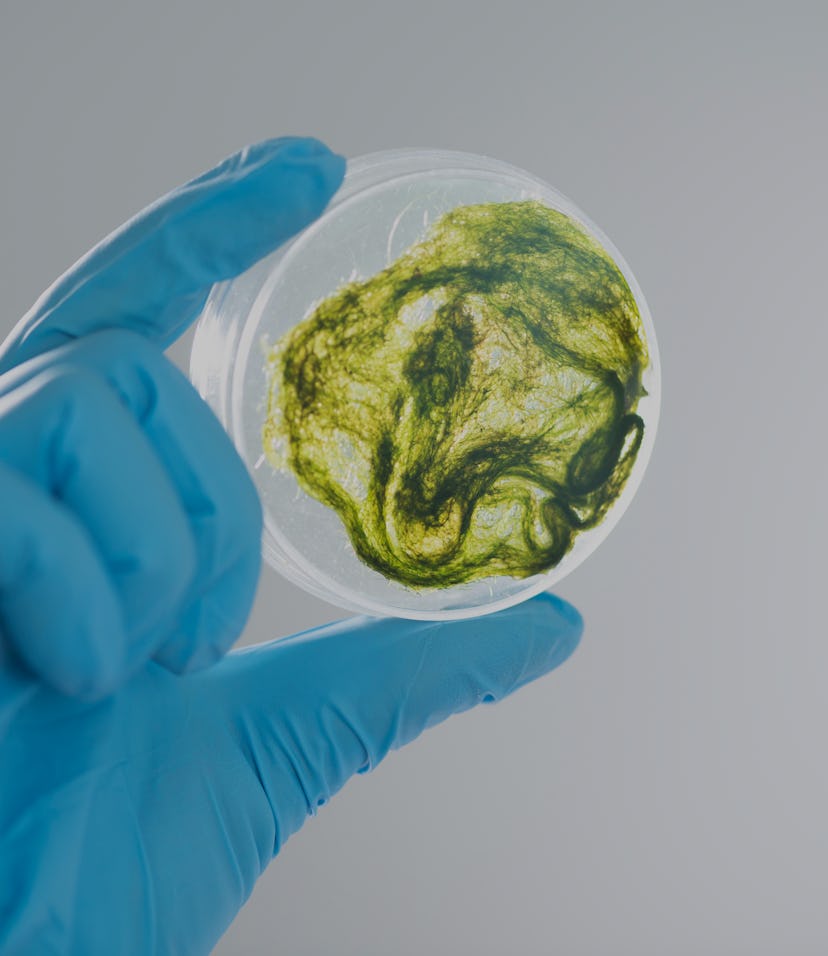Culture
These flip-flops made from algae are sticking it to the plastic industry
Taking biodegradation to another level.

For a while now, sustainable fashion has been trying to take off. Now, Stephen Mayfield, the director of the California Center for Algae Biotechnology at U.C. San Diego, has an idea that could transform flip-flops, tourism-induced pollution by the seashore, and Big Plastic.
According to Fast Company, Mayfield and his team are working on creating algae-based flip-flops at the Algenesis lab, which are biodegradable and (hopefully) chic.
Algae versus plastic — Conventional manufacturing of plastic takes up a lot of crude oil and requires a great deal of carbon, which has a deleterious impact on the climate. In contrast, algae manufacturing takes a lot less carbon when you're attempting to extract oil from it. If this production can be increased in scale and made more common, it could give Big Plastic a run for its money since algae — unlike crude oil which is limited in amount — is a renewable resource.
An endeavor worth encouraging — Plastic-based pollution has fundamentally altered some of the most delicate and complicated forms of nature. Consider the issue of honeybees making their nests out of plastic or how countless ocean animals find themselves severely wounded, even killed, by physically agonizing tangles of plastic. Sure, the material is industrially considered affordable, quick to make, and durable. But it has come at a detrimental cost. Researchers have long attempted to see solutions to Big Plastic, including considering using fish skin and algae to fight the pollution.
For example, this University of Sussex student created a bioplastic out of scales and red algae. A natural source like that could become a sustainable form of biodegradable material. The material would biodegrade in soil in less than 30 days.
Cleaner seafloors — With algae flip-flops, there could be a viable solution to the issue of some three billion plastic flip-flops ending up in the ocean on an annual basis. Algae-based polyurethane has the potential to address that waste and replace it with a biodegradable form, which won't pollute seafloors and more. Financially, it could take on the $1.2 trillion plastic industry and the $215 billion shoe-wear industry.
Once people throw these flip-flops away, they won't have to worry about tiny particles endangering the lives of living creatures in ocean. As Mayfield notes, these flip-flops become actual food later on. "Organisms cut the bonds in the polymers," he explained, "then they eat the small molecules. It turns into natural products." There's a strange beauty to that.